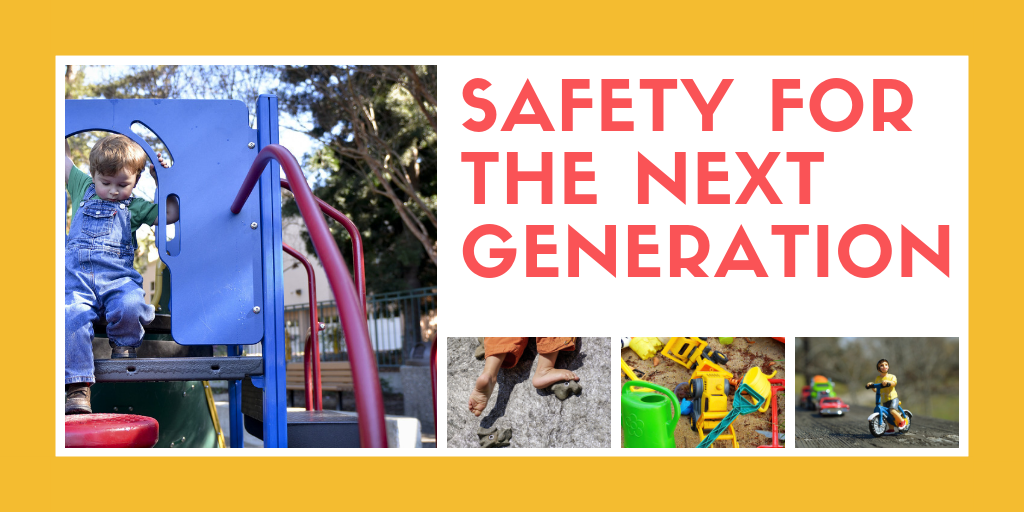Download PDF: ISPL Insight – Safety for the Next Generation
The practice of risk assessment can be subjective, with the person doing the assessing only having the knowledge of what they are exposed to. Generally, people develop a greater understanding of the various risks of everyday life as they grow older and enter the workforce, often taught by parents or through exposure to the surrounding environment and different situations. The world of children today has changed with society becoming more risk-averse and fixated on safety and “no risk” play (Early Childhood Australia 2013). As a result, many children have become timid and are reluctant to take risks, or at the opposite extreme can have difficulty reading the situations they face and take foolhardy risks (Almon 2013).
Below are some of the resources available that can be used at home or school to help provide children with the skills and abilities to identify and mitigate risk when they come across it so they can engage with the big wide world and develop into confident, resourceful and resilient adults able to take calculated risks (Early Childhood Australia 2013).
Getting Back to Nature
Children today are spending less time outdoors than their parents did, due largely to the development of technology and an increasingly risk-averse society, resulting in children not being able to practice risk assessment which allows them to match their skills with the demands of the environment (Almon 2013).
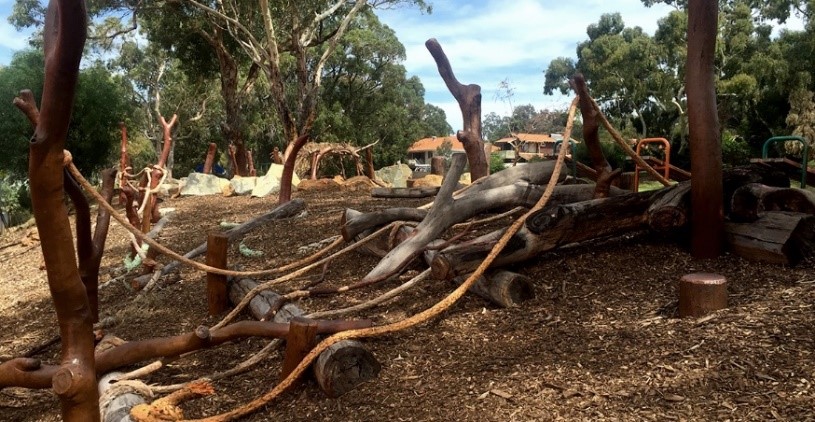
Along with all the health benefits of outdoor play, the child who is allowed to climb objects such as playground equipment and trees will grasp a better understanding of risk and risk assessment (Bauer 2016) as natural, irregular and challenging spaces help children learn to recognise, assess and negotiate risk and build confidence and competence (Nature Play WA n.d.).
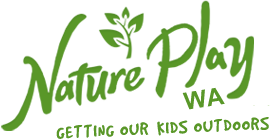 This philosophy has seen a surge in nature play spaces being built in schools and suburban park areas. Nature Play WA is a not-for-profit organisation established to increase the time Western Australian children spend in unstructured play outdoors and in nature. Their website (www.natureplaywa.org.au) has resources to encourage children to put down the electronics and engage with nature. You can also find a list of nature play spaces within your local area.
This philosophy has seen a surge in nature play spaces being built in schools and suburban park areas. Nature Play WA is a not-for-profit organisation established to increase the time Western Australian children spend in unstructured play outdoors and in nature. Their website (www.natureplaywa.org.au) has resources to encourage children to put down the electronics and engage with nature. You can also find a list of nature play spaces within your local area.
Planet ThinkSafe

ThinkSafe SAM
Picture Source (Work Safe)
General Safety at Home Developed by Work Safe Western Australia, the Planet ThinkSafe program is aimed at primary school children with a focus on developing a positive attitude towards, and the skills at be safety at school, home and in the community (Work Safe 2018). The program follows the ThinkSafe SAM steps of Spotting the Hazard, Assessing the Risk and Making the Changes, with topics covered including:
- Bathroom Safety at Home
- Kitchen Safety at Home
- Playground Safety
- Classroom and Verandah/Corridor Safety at School
- Being SunSmart
More information can be found on the website: http://thinksafe.safetyline.wa.gov.au/
Kidsafe WA
Kidsafe WA a leading organisation dedicated to promoting safety and preventing childhood injuries and accidents by working in the community to educate and inform parents and children on staying safe at home, at play and on the road (Kidsafe WA 2016).
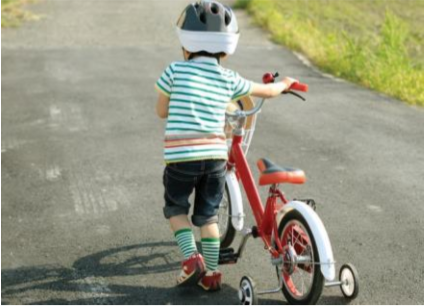 In addition to online resources for parents, Kidsafe WA have developed an online interactive student education website, called Safety Island. The program is aimed at providing vital safety information in an engaging online platform, covering the following topics (Kidsafe WA 2016):
In addition to online resources for parents, Kidsafe WA have developed an online interactive student education website, called Safety Island. The program is aimed at providing vital safety information in an engaging online platform, covering the following topics (Kidsafe WA 2016):
- Road – Pedestrian safety, Passenger safety, Road Rules and Public Transport
- Home – Poisons Safety, Animal Safety, Backyard Safety and Cyber Safety
- School – Bike safety, School Bag Safety, To and From School
- Play – Playground Safety, Sun Safety, Beach Safety, Sports Safety
More information can be found on the website: www.kidsafewa.com.au
Department of Fire & Emergency Services (DFES)
The DFES website provides online resources for schools and children aimed at building disaster resilience in young children. Resources are evidence-based drawing on present research and practice in the field of disaster and resilience education (Department of Fire & Emergency Services 2018).
The DFES online games and activities aimed at children cover Bushfire Safety, Safety Around Water and Triple Zero. School resources are also available aimed at raising awareness of natural and man-made disasters.
DFES also offer free Excursions and Incursions for primary school students, with more information available on the website: www.dfes.wa.gov.au
Eliminate Hazards, Not Risk
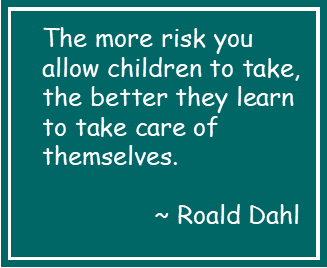 No play space or situation is ever truly risk-free, with a risk being something that is possible to negotiate and can be appropriate for particular situations and children. Hazards on the other hand are things that are inherently dangerous and need to be removed as they are not often invisible to children, for example, sharp edges on climbing structures, broken glass or malfunctioning playground equipment (Early Childhood Australia 2013).
No play space or situation is ever truly risk-free, with a risk being something that is possible to negotiate and can be appropriate for particular situations and children. Hazards on the other hand are things that are inherently dangerous and need to be removed as they are not often invisible to children, for example, sharp edges on climbing structures, broken glass or malfunctioning playground equipment (Early Childhood Australia 2013).
Parents and teachers should aim to eliminate the exposure of children to hazards, whilst still allowing them to experience the benefit of risks.
If you or your workplace require assistance to identify risks and hazards or would like to roll out hazard and risk awareness training please email or call Integrate Sustainability (enquiries@integratesustainability.com.au , 08 9468 0338).
References
Almon, Joan. 2013. “The Role of Risk in Play and Learning.” Community Playthings. 20 August. Accessed September 11, 2018. http://www.communityplaythings.com/resources/articles/2013/the-role-of-risk-in-play-and-learning.
Bauer, Clint. 2016. “The Imporrtance of Outdoor Play for Children.” Nature Play Qld. 22 June. Accessed September 11, 2018. https://www.natureplayqld.org.au/articles/the-importance-of-outdoor-play-for-children.
Department of Fire & Emergency Services. 2018. School Education. Accessed September 11, 2018. https://dfes.wa.gov.au/schooleducation/Pages/default.aspx.
Early Childhood Australia. 2013. Talking about practice – Adventurous play – Developing a culture of risky play. Accessed September 11, 2018. http://www.earlychildhoodaustralia.org.au/nqsplp/wp-content/uploads/2013/07/NQS_PLP_E-Newsletter_No58.pdf.
Kidsafe WA. 2016. Kids Zone. Accessed September 11, 2018. http://www.kidsafewa.com.au/kids-zone.
Nature Play WA. n.d. “Benefits: Why build a nature-based playground?” Nature Play WA. Accessed September 11, 2018. https://www.natureplaywa.org.au/programs/nature-playgrounds/benefits.
Work Safe. 2018. Planet ThinkSafe. Accessed September 11, 2018. http://thinksafe.safetyline.wa.gov.au/.

